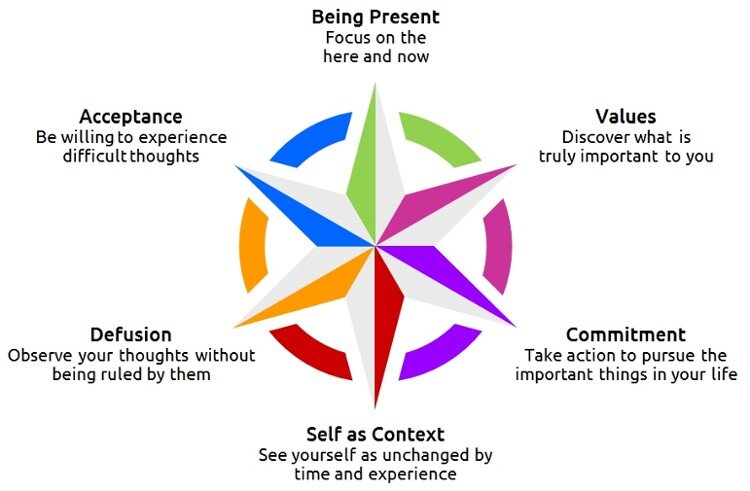What are Acceptance and Commitment (ACT) & CBT Therapies?
Adapted from an original article by Joel Guarna at contextualscience.org
What is Acceptance and Commitment Therapy (ACT, said as the word "act")? ACT, just approaching its 30th anniversary since its inception, is an innovative form of behavioral and cognitive therapy that has built upon both the strengths and the weaknesses of traditional cognitive-behavioral therapy (CBT).
CBT has become the most well-known, mainstream approach to therapy, partly because it has, by far, the strongest research support for its effectiveness in treating a wide range of emotional and behavioral problems. CBT has been found effective in treating depression, anxiety disorders, the effects of trauma, substance abuse and addiction, complications related to medical conditions, and many other conditions.
ACT is based on a behavioral account of human language and cognition called Relational Frame Theory (RFT) which has generated research into human language and cognition, providing fuel for the development of new treatment approaches. The "fruit" of this progress can be found in the philosophy and basic concepts underlying ACT. ACT has moved away from the traditional CBT emphasis on changing or correcting one's thoughts in order to alleviate suffering. Instead, ACT aims to alter the functions of our private experiences (thoughts, feelings, memories, bodily reactions), so they no longer entangle us. Said another way, ACT aims to change our relationship with these private events so we can become free from their grip, and free from the patterns that bind us and prevent us from living a flexible, meaningful, and enjoyable life. In the service of these aims, ACT incorporates acceptance strategies, mindfulness techniques, and a wide range of behavioral approaches already known to be effective from CBT.
ACT is one of a family of interventions inside the CBT tradition writ large that are focusing on the person's relationship to experiences rather than on the content of these experiences. The data on ACT and related approaches are moving CBT itself toward a new model that emphasizes being open, centered, mindful and actively pursuing values. Because of that, ACT and CBT as a larger tradition are becoming more difficult to distinguish over time.
At Better Health Psychology, when we meet you, we tailor your therapy to treat your specific problem. We use a variety of therapies, including CBT and ACT therapies, and take the best parts of these therapies that are most useful and suitable to help you to achieve your treatment goals.

